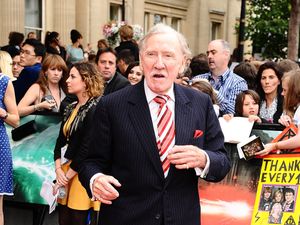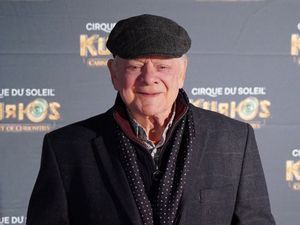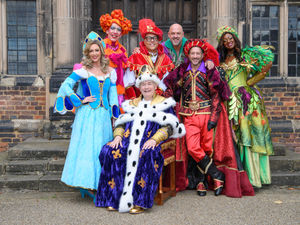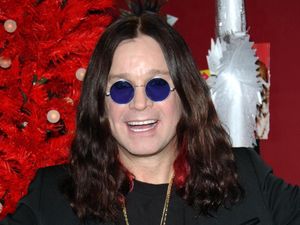Leslie Phillips: Comedy actor who made his name in Carry On films
He will be fondly remembered for the comic characters he perfected in the Carry On films and elsewhere.

Leslie Phillips, famous for his leery ladies’ man, roguish, upper-class roles, was a great comedy actor who yearned to get out of what he called “that rut” and concentrate on heavier and more serious parts.
To some extent he succeeded, but even so he will always be remembered above all else for the outrageous comic characters he perfected in the Carry On films and elsewhere.
But although the Carry On films – he appeared in three of them – were his major claim to fame, Phillips was almost scornful about them in later years.
He said: “In the old days the Carry On films would have died a natural death after doing the rounds at the cinemas.
“But then television came along and they were absolutely flogged to death, all over the world. Someone’s made quite a lot of money out of them, but not those of us who acted in them.”
Phillips was the type of actor who could never be persuaded to retire.
Once he told an interviewer: “If you are asking when will I retire, then the answer is never. I intend to die on the job.”
Although he was famous for his come-hither, aristocratic tones, Phillips was born and brought up in London, speaking much of the time what is now called estuary English.

He took elocution lessons to enable him to speak “proper” English, which in his early days was an essential part of any actor’s equipment.
Leslie Samuel Phillips was born in Tottenham, north London, on April 20 1924.
He attended Chingford School and later the Italia Conti Stage School.
Then he served as a lieutenant in the Durham Light Infantry from 1942 until 1945, when he was invalided out.
Phillips said of his experiences: “The beginning of my trouble was continuous bombardment and the bangs. It was nerve-wracking with aeroplanes flying over and shooting them down.
“I used to get a sort of paralysis on the left side of the body. I suppose it was a form of shell-shock. I never really recovered.”
In 1945 he went to a hospital in north London with “people who had every known kind of problem – it was a great mess of people who were suffering”.
He went on: “To be honest, I never thought I’d survive the war. I always thought, ‘Any minute now I’ll be bloody killed’, so I was quite surprised to be alive.”
He was soon back in the limelight and began to get leading roles on the stage and screen from the early 1950s.

But Phillips began making serious inroads into film from 1955 and his foxy charm was seen to good effect in Brothers In Law, The Smallest Show On Earth and The Man Who Liked Funerals.
In that film he played the star role of a man who blackmailed the bereaved in a good cause.
He became well known for his appearances in the Doctor films, as well as in a series of fast-moving comedies that teamed him with Scots comedian and impressionist Stanley Baxter.
They began with the prisoner-of-war caper Very Important Person and continued with Crooks Anonymous, The Fast Lady and Father Came Too, about a disastrous honeymoon.

Within the space of five years Phillips had made 18 starring comedies, but the output of comedy from British studios had suddenly become quite restricted during the 1960s.
After making Doctor In Clover, Phillips made a disastrous career switch by starring in Maroc 7, a woeful spy thriller.
But things were looking up for him on television, especially with Our Man At St Mark’s.
He returned to films in the late 1980s in largely comedy character roles.
Like most of his contemporaries, he did a stint in Hollywood, but he preferred Britain.
“I could have stayed,” he said once, “but I am a Londoner through and through. I want to go everywhere, but I will always want to live in London. So I came back.”
It was in the mid-1980s that he decided to become a serious actor. He joined the Royal Shakespeare Company and played roles such as Falstaff in The Merry Wives Of Windsor.

But fine all-round actor though he was, his huge following preferred him as the saucy seaside postcard character.
Phillips was awarded the OBE in 1998.
His first marriage, in 1948 to Penelope Bartley, was dissolved in 1965. They had two sons and two daughters.
He said that they “drifted apart” because of his work in the United States but he counted the failure of that marriage as the greatest tragedy of his life.
In 1982 he married his second wife Angela Scoular and the couple remained together until her death in April 2011.
Scoular was suffering from bowel cancer and depression and took her own life.
Phillips was too ill to attend the inquest into Scoular’s death three months later.
A long-term fan of Tottenham Hotspur, he appeared on the pitch as part of the half-time entertainment during the team’s home match against Swansea City in 2012.

In December 2013, Phillips, aged 89, married Zara Carr, his third wife.
He suffered a stroke while on a shopping trip with his wife in London in August 2014.
A few months later, Phillips was again admitted to hospital after suffering a seizure.
Phillips had a wide variety of interests outside the theatre, including cars, racing, gardening, classical music, weaving, chess and all sport.
In 2014 he also starred in the gothic mystery film Darkheart Manor alongside Harry Potter and the Deathly Hallows Part One and Two actor Nick Moran.




